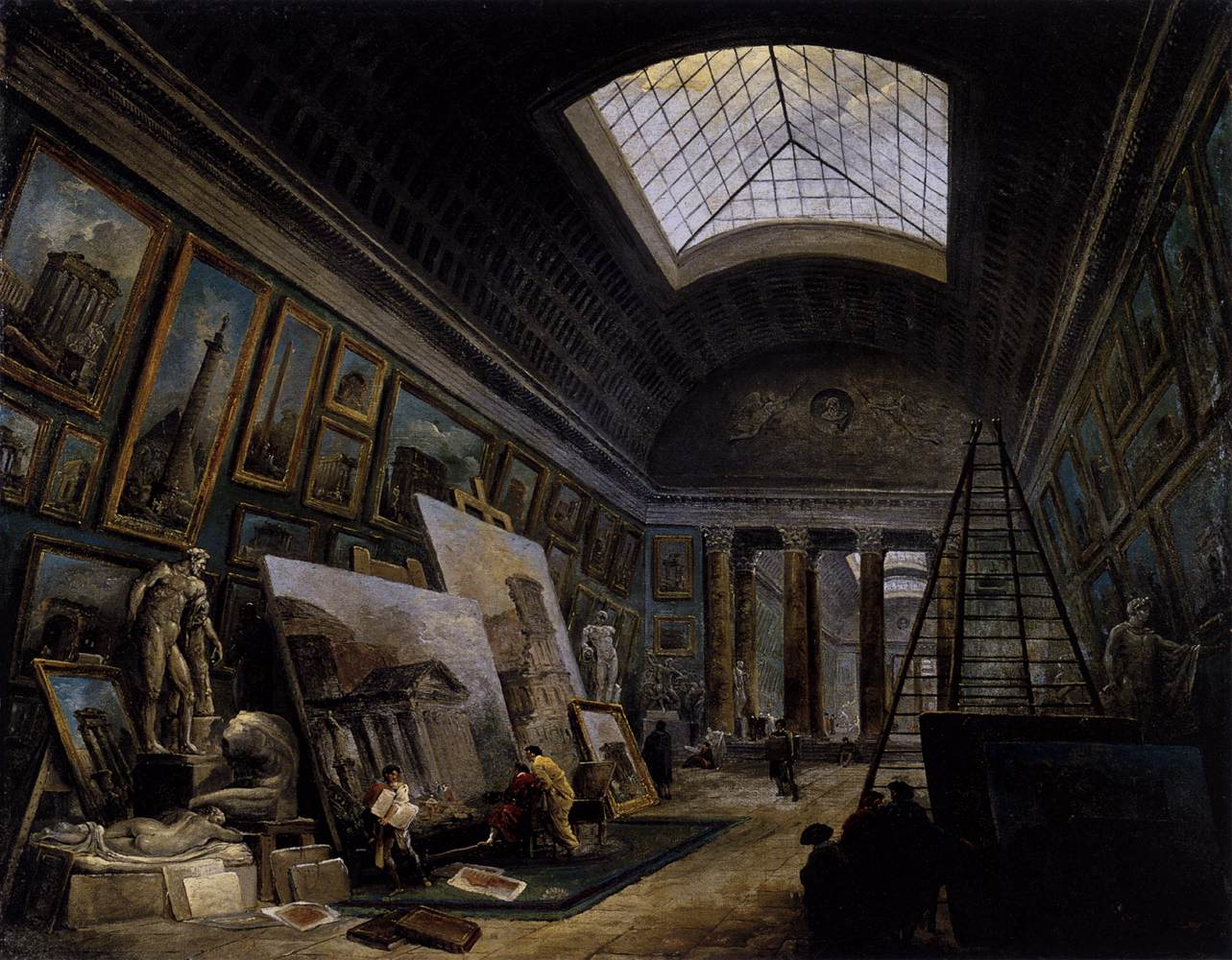Description
The Imaginary View of the Grande Galerie in the Louvre painting by French artist Hubert Robert is an 18th century masterpiece depicting the famous Louvre gallery in Paris. This work is an imaginary view, which means that it is not an exact representation of the gallery, but an artistic creation of the artist.
The artistic style of the work is typical of the French Rococo, an artistic movement that was characterized by its elegance, sophistication and delicacy. Hubert Robert, known as the "Ruin Painter", specialized in painting urban and architectural landscapes, and this work is a perfect display of his ability to create imaginary and detailed scenes.
The composition of the painting is impressive. The gallery view extends from the background of the painting to the foreground, with an abundance of detail in every corner. The viewer can see a variety of figures, from noblemen and ladies to artists and workers, all of them going about their daily tasks.
Color is another interesting aspect of the work. Soft and delicate pastel shades create a feeling of tranquility and harmony in the scene. Architectural details are painted with great precision and realism, making the gallery view appear almost lifelike.
The history of painting is fascinating. It was commissioned by King Louis XVI of France in 1788, shortly before the French Revolution. The work was part of the royal collection until it was confiscated during the Revolution and later transferred to the Louvre.
Despite its popularity, there are some little-known aspects of the work. For example, Hubert Robert is believed to have used a mirror to create the gallery's view, allowing him to capture architectural details with exceptional precision. Furthermore, the figure on the left of the painting is said to be a representation of Hubert Robert himself.
In short, the Imaginary View of the Grande Galerie in the Louvre painting is a masterpiece of French Rococo that stands out for its artistic style, composition, color, and architectural details. Its little-known history and aspects add even more interest to this impressive work.

